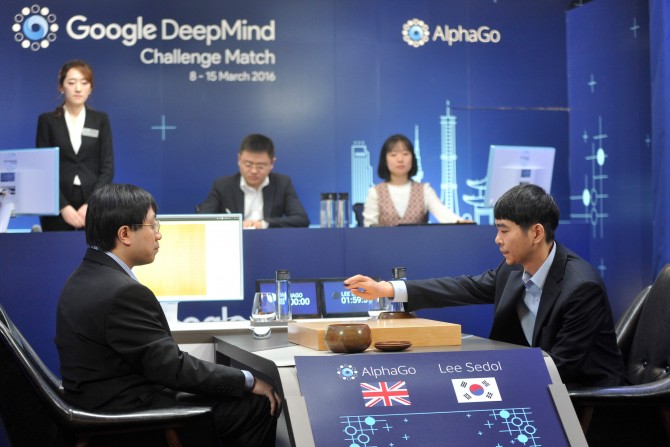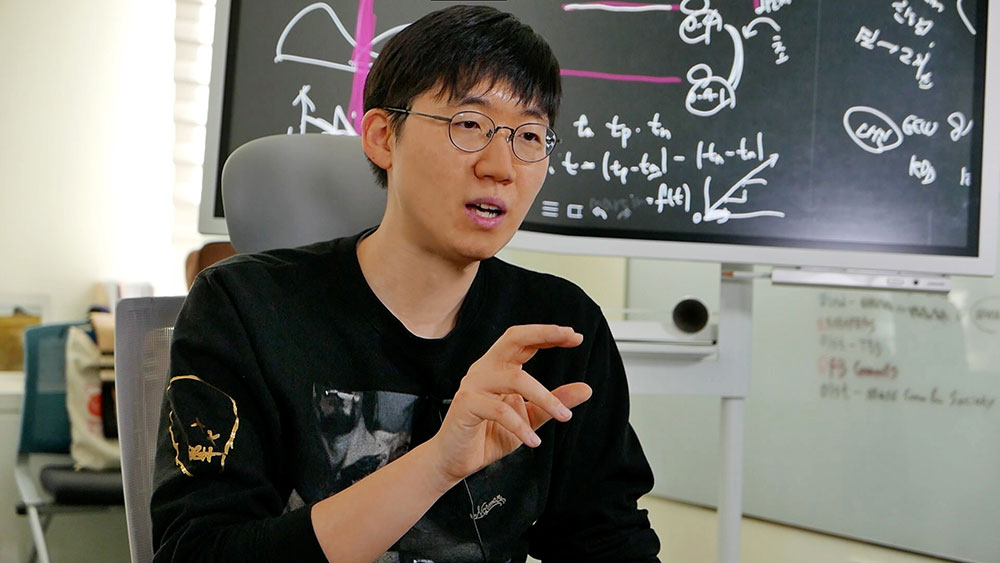주메뉴
- About IBS 연구원소개
-
Research Centers
연구단소개
- Research Outcomes
- Mathematics
- Physics
- Center for Underground Physics
- Center for Theoretical Physics of the Universe (Particle Theory and Cosmology Group)
- Center for Theoretical Physics of the Universe (Cosmology, Gravity and Astroparticle Physics Group)
- Dark Matter Axion Group
- Center for Artificial Low Dimensional Electronic Systems
- Center for Theoretical Physics of Complex Systems
- Center for Quantum Nanoscience
- Center for Exotic Nuclear Studies
- Center for Van der Waals Quantum Solids
- Center for Relativistic Laser Science
- Chemistry
- Life Sciences
- Earth Science
- Interdisciplinary
- Center for Neuroscience Imaging Research (Neuro Technology Group)
- Center for Neuroscience Imaging Research (Cognitive and Computational Neuroscience Group)
- Center for Algorithmic and Robotized Synthesis
- Center for Genome Engineering
- Center for Nanomedicine
- Center for Biomolecular and Cellular Structure
- Center for 2D Quantum Heterostructures
- Center for Quantum Conversion Research
- Institutes
- Korea Virus Research Institute
- News Center 뉴스 센터
- Career 인재초빙
- Living in Korea IBS School-UST
- IBS School 윤리경영


주메뉴
- About IBS
-
Research Centers
- Research Outcomes
- Mathematics
- Physics
- Center for Underground Physics
- Center for Theoretical Physics of the Universe (Particle Theory and Cosmology Group)
- Center for Theoretical Physics of the Universe (Cosmology, Gravity and Astroparticle Physics Group)
- Dark Matter Axion Group
- Center for Artificial Low Dimensional Electronic Systems
- Center for Theoretical Physics of Complex Systems
- Center for Quantum Nanoscience
- Center for Exotic Nuclear Studies
- Center for Van der Waals Quantum Solids
- Center for Relativistic Laser Science
- Chemistry
- Life Sciences
- Earth Science
- Interdisciplinary
- Center for Neuroscience Imaging Research (Neuro Technology Group)
- Center for Neuroscience Imaging Research (Cognitive and Computational Neuroscience Group)
- Center for Algorithmic and Robotized Synthesis
- Center for Genome Engineering
- Center for Nanomedicine
- Center for Biomolecular and Cellular Structure
- Center for 2D Quantum Heterostructures
- Center for Quantum Conversion Research
- Institutes
- Korea Virus Research Institute
- News Center
- Career
- Living in Korea
- IBS School
News Center
| Title | Using data to decipher mental health | ||||
|---|---|---|---|---|---|
| Name | Communication Team | Registration Date | 2021-03-10 | Hits | 3063 |
| att. |
 thumb.jpg
thumb.jpg
|
||||
Using data to decipher mental healthIBS People - PARK Sungkyu (senior researcher, Data Science Group) “Our lives can be defined by a collection of countless data that we generate in our every waking moment. Data science is a field that involves the extraction and analysis of the hidden information within this data to come up with useful solutions.” PARK Sungkyu is a senior researcher from the Data Science Group within the IBS Pioneer Research Center for Mathematical and Computational Sciences. His field of research involves the collection and analysis of data in order to help improve the lives of those who suffer from sleep disorders and depression. His first encounter with data science began with his first career after university. After graduating with a degree in electrical engineering, Park worked in an electronics company that produces TVs. One of his duties was collecting and analyzing the voice of the customer (VOC) and using the data to identify what the consumers like or dislike about the company’s products. While there weren’t many computational methods to process the VOC data at the time, Park realized that data analysis had a tremendous potential to improve people’s lives in the future. For that reason, he decided to enroll in a graduate school program to further his studies in data science. The rise of data science
Numerous people probably became aware of the impact of data science in 2016, when Google DeepMind’s AlphaGo convincingly defeated Lee Sedol in a match of go. Alphago was an artificial intelligence that employed a Monte Carlo tree search reinforced with deep learning neural network to achieve this feat. While an initial training set of 160,000 games and 30 million moves was used to train the original AI, the latest iteration called AlphaGo Zero was able to master the game without any input data from human games. However, an interest in data science within academia has a far longer history. Back in 1999, Albert-László Barabási and Réka Albert from the University of Notre Dame proposed a new network theory using Barabási–Albert model. The theory explains that the individual elements within many natural and artificial systems - such as cells, the economy, and the internet - do not function independently, but are intricately intertwined in a scale-free network. These networks contain a small number of ‘hubs’, which have a particularly large number of connections to the other nodes within the system. Some examples of such hubs include influencers within social network services, hub airports in airline networks, or super-spreaders in the COVID-19 pandemic. Park states that the research in computational social science increased exponentially around that time. The field has expanded to study the effects of social contagion on phenomena such as the spreading of music, fashion, or memes within the social network platforms. Can data science be used to ease pain?During his Master’s degree, Park’s research topic was on the prediction of depression in individuals. Park used a computational approach to analyze various metadata, such as the contents that the users liked on Facebook to see if they can be indicative of possible depression. Successful prediction of depression can allow the therapists to step in for an intervention. However, Park was interested in not only the prediction of an illness but also its treatment by developing various applications. In that regard, he decided to switch his research topic to sleep disorder instead, as depression requires professional diagnosis and is more difficult to treat using cognitive behavioral therapy alone. Currently, his research team is pursuing research under the project name “Sleeps”. The research in general consists of two parts. The first part involves devising a model for understanding and predicting insomnia, while the second part aims to use the model to develop applications for personalized intervention treatment. The project has been gathering daily behavioral data from 140 voluntary subjects. To take part in the study, the participants equip wearable devices such as Fitbit or Samsung Galaxy Watch 24 hours a day for 1 month. The devices will monitor and gather data about the subjects’ activities, sleep patterns, and various biological signals. These data are analyzed using a deep learning algorithm to categorize the participants into clusters according to their behavioral patterns. By consulting with expert psychologists, the subjects were categorized into 5~7 different groups. For example, such groups can be ‘high sleep quantity but poor sleep quality’ or ‘low sleep quantity’ groups. These data are later used in the research regarding proper intervention therapy. Intervention is a technique that used in cognitive behavioral therapy to induce or prevent certain behaviors in patients. For example, if a subject’s lack of daily activity hints towards a stronger probability of insomnia the following night, an application can advise the user to engage in some form of activity. Employing data science for a happier future
The advancement of AI technology is being accompanied by the expansion of data science into various applications. If data science was used to understand certain phenomenons in the past, current research focuses on how it can be used to predict the future. Accumulation of new data is also resulting in greater accuracy of such predictions. Using the knowledge gained from the insomnia prediction model and intervention therapies, the IBS Data Science Group eventually plans to establish comprehensive treatment for more complicated illnesses such as depression, attention deficit disorder (ADHD), and post-traumatic stress disorder (PTSD). Park said, “The goal is to start with finding meaning within the data using various predictive models, then using the obtained insights to perform research that can actually help people.” He added, “We hope that data science can be used to better predict human behavior and mental health and to devise the best solutions to help the afflicted individuals lead happier lives.” IBS Communications Team |
|||||
| Next | |
|---|---|
| before |
- Content Manager
- Public Relations Team : Yim Ji Yeob 042-878-8173
- Last Update 2023-11-28 14:20













